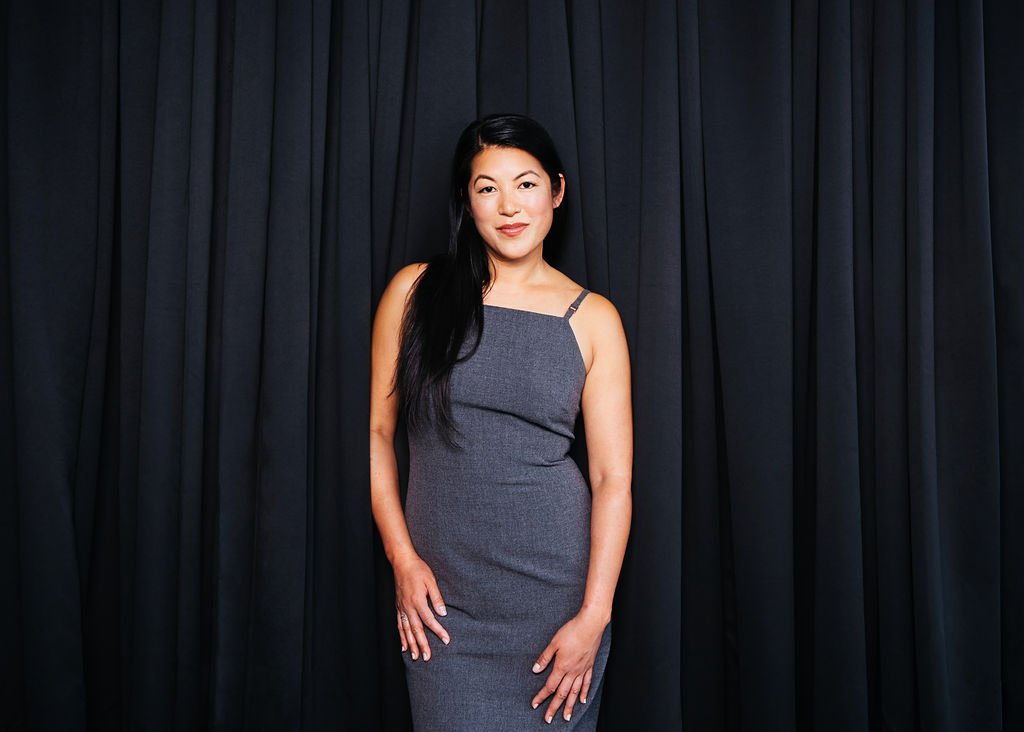
about belinda
BIO
Belinda Fu, MD, (“theImprovDoc”) is a family physician, educator, and performing artist based in Seattle. She received her BA at Stanford, her MD from the University of California at San Francisco, and completed her residency and fellowship at the University of Washington. Belinda is recognized for her outstanding public speaking, performance, teaching, and facilitation skills, and for her innovative approaches to medical education, physician wellness, communication, and improvisation. She is an international leader in the field of medical improv.
She is Clinical Associate Professor in the Department of Family Medicine, University of Washington School of Medicine, and Director of The Mayutica Institute, an education and training organization. She is an ensemble member of Seattle’s Unexpected Productions, and performs regularly with multiple improv groups in the Pacific Northwest.

my story
When I was diagnosed with cancer in 2011, I had to choose: surrender to despair or find another way to live.
For decades, I'd pursued society's version of a perfect life. And I'd failed to achieve those impossible standards, professionally and personally. Even getting cancer felt like a failure. Hence my despair.
I chose to live.
As I recovered, I reclaimed my personal identity, voice, and values. I chose improv as my language and portal to truth. I chose to share the transformative gifts of improv with others. I chose to pursue a life that defies societal expectations … and here we are today.
I chose a new way to live, and it's invigorating, exhausting, restorative, forgiving, connecting, empowering, healing, true, and uniquely mine. The story continues to unfold!

my medical improv journey
The early years
I’ve always valued arts in healthcare: for over a decade, I sang and played music for patients at nursing homes and hospitals. And I’ve always been interested in communication in healthcare: my undergrad thesis was about medical jargon in patient education. But the intersection of improv with medicine? That was unexpected.
2007–2010 : all the improv
When I started taking improv classes in 2007, during my chief resident year, it was just for fun. I didn’t know “medical improv” existed. I FELL IN LOVE WITH IMPROV and dove into the performance improv world, doing every class and show I could. By 2010, when I became faculty in a family medicine residency program, I was still performing improv, but my improv and medical worlds were separate.
2011 : darkness
In early 2011, I was diagnosed with vulvar neoplasia. It was a dark time. Soon after my diagnosis, I met with two different gynecologic oncologists, and had tremendously different communication experiences. One oncologist was detached and abrupt. The other oncologist, Dr. Hisham Tamimi, (who I ended up seeing for the next ten years!) was empathic, present, and articulate. His compassionate care helped me survive that terrible chapter of my life. And improv also helped me survive, though I didn’t realize it at the time ...
2012 : recovery & light(bulbs)
After my treatment, I went back to doing improv, and working as a medical educator, teaching communication skills to residents … and that’s when the “lightbulb” happened. I realized improv taught the same outstanding communication abilities and compassionate humanity embodied by Dr. Tamimi. So my unfortunate medical diagnosis was also a gift, because it led to a realization of the connection between improv and medicine. I realized that improv would be a powerful, enjoyable, efficient, and effective way to teach communication skills and empathy in the context of medicine, addressing challenges such as teamwork, burnout, difficult conversations, interprofessional collaborations, and many more.
2012–2013 : A mentor & Community
I was extremely fortunate to find a mentor in Prof. Katie Watson, a bioethicist at Northwestern Feinberg School of Medicine and a Second City improv instructor. Prof. Watson coined the term “Medical Improv” and has been teaching improv to medical students since 2002. Over the next few years, she generously worked with me to hone my skills, so we could deepen the understanding and potential of medical improv. In 2013, we launched the Medical Improv Train-the-Trainer Workshops, which continue to train clinicians and educators from around the world, building a community of like-minded, exceptional medical improv professionals.
Since 2013 …
As my work in medical improv has grown, I’ve identified more elements that made my wonderful oncologist’s communication so compelling, and I’ve developed robust improv curricula to share those skills with my residents, students, and colleagues. I’ve helped establish a national professional community of medical improv practitioners, and I take great joy in supporting my peers on their med improv journeys. I continue to do research and write, to expand our collective understanding of this rich practice.
As a clinician, educator, and human, I’ve felt humbled and empowered by improv. I’m able to build stronger healing relationships with patients, work more effectively on teams, navigate tricky conversations, give more effective feedback, and — perhaps most importantly — improve my wellbeing and have a healthier perspective on life. Other dark chapters have happened. Time and again, improv has saved me. Improv taught me how to cherish what matters most: my family, friends, and community, who are the true reasons I’ve survived. I am grateful for the heart and skills of improvisation, and for the opportunity to share these gifts with you.

